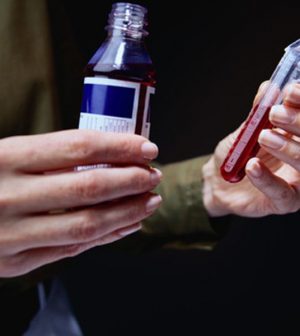- Could Your Grocery Store Meat Be Causing Recurring UTIs?
- Are You Making This Expensive Thermostat Error This Winter?
- Recognizing the Signs of Hypothyroidism
- 10 Strategies to Overcome Insomnia
- Could Artificial Sweeteners Be Aging the Brain Faster?
- Techniques for Soothing Your Nervous System
- Does the Water in Your House Smell Funny? Here’s Why
- Can a Daily Dose of Apple Cider Vinegar Actually Aid Weight Loss?
- 6 Health Beverages That Can Actually Spike Your Blood Sugar
- Treatment Options for Social Anxiety Disorder
A Prescription for Medicating Your Child Safely

When your child is sick, taking the right medication can make all the difference — as long as it’s correctly chosen and measured. But sometimes mistakes occur. Here are safety steps to help prevent medication errors from happening.
Make sure that the prescribing doctor knows about any drugs, vitamins and supplements your child takes, and about any allergies he or she might have. Confirm your child’s weight so the right dose is prescribed.
Verify with the doctor how many times a day, at what intervals and for how many days your child needs the medicine. Ask if your child’s diet or activities need to be changed while on the medication. Find out how soon you should see results. Write down all of this information along with the exact spelling of the drug name. According to a Massachusetts College of Pharmacy and Health Sciences study, 88% of medication errors involve the wrong drug or the wrong dose.
When you fill the prescription, double-check that the drug name, dose and frequency on the label is what your doctor ordered. Go over the directions with your pharmacist. If a liquid medicine doesn’t come with its own dosing device, buy one, or be sure to use the right size measuring spoon — not a kitchen spoon.
The medication should come with a printout called “patient prescribing information,” which will detail side effects and cautions. Ask for it if it’s not offered and review it at home. If your child experiences any side effects, call your doctor right away.
More information
The American Academy of Pediatrics has more on how to safely give children medications.
Source: HealthDay
Copyright © 2026 HealthDay. All rights reserved.










